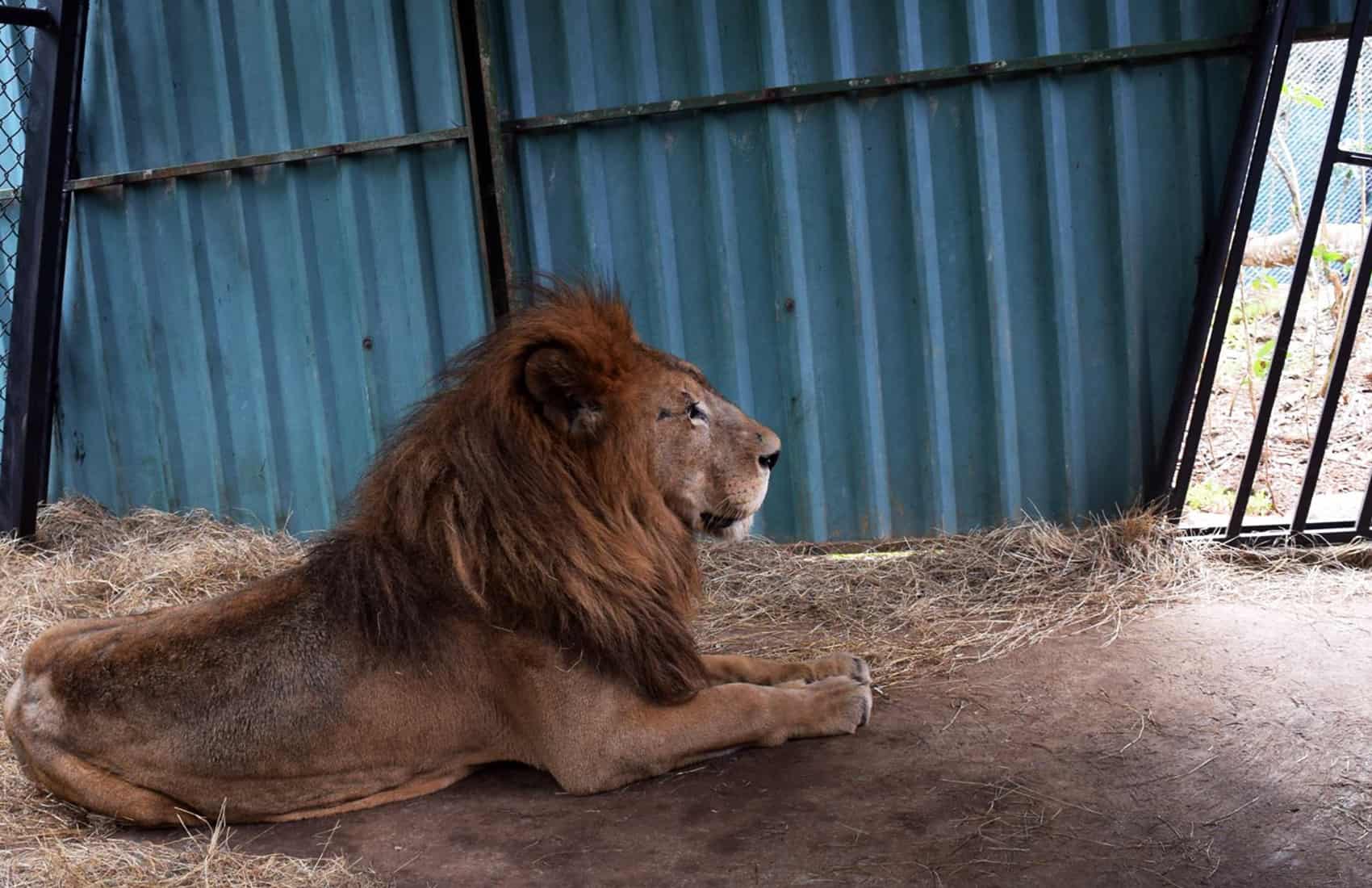The health of Kivú, the only living lion in Costa Rica, deteriorated in recent weeks, and a group of experts are evaluating options including putting him to sleep.
Bernardo Jaén, General Director of the Agriculture and Livestock Ministry’ National Animal Health Service (SENASA), told The Tico Times on Wednesday that the lion has lost his appetite and has eaten only soup for the past few days.
Jaen said that on Feb. 6, Kivú’s caretakers conducted a general checkup of the 18-year-old lion including X-rays, ultrasound and also took blood samples.
“Results showed that Kivú’s chronic renal disease has worsened. He also lost weight and is showing very low mobility,” he said. Those results are consistent with a previous evaluation conducted in January.
Experts are evaluating “whether to continue giving him more drugs; in the event that his condition doesn’t show any improvements, they might even suggest conducting an assisted death,” Jaen added.
The group includes experts and officials from SENASA, the Environment Ministry (MINAE), the National University and from ZooAve, the lion’s current home in the province of Alajuela.
The final recommendation on the lion’s fate will be announced tomorrow. The first communication will be to both the Environment and the Agriculture and Livestock ministers; “then we will make a public announcement,” Jaen said.
He also noted that the lion is being monitored around the clock with the help of three cameras and that he is receiving all necessary medical attention.
Iconic animal
Officials of MINAE and the Agriculture and Livestock Ministry relocated Kivú to ZooAve, a private shelter, from his old home at a cage at the Simón Bolívar Zoo in downtown San José on Dec. 5.
At the time, officials said the relocation was conducted to provide Kivú with better living conditions. Evaluations from both ministries in September concluded that the zoo cage where Kivú was being exhibited was unsuitable for the old feline.
He now lives in a 300-square-meter space (some 3,300 square feet) surrounded by nature, with plants, ramps and a pond. The space also has a cave and other spaces where he can hide if he wants to, and he is no longer on public display.
Kivú arrived at the zoo in 1999 and had already exceeded the average of 14 years that captive lions usually live, SENASA officials have indicated.






